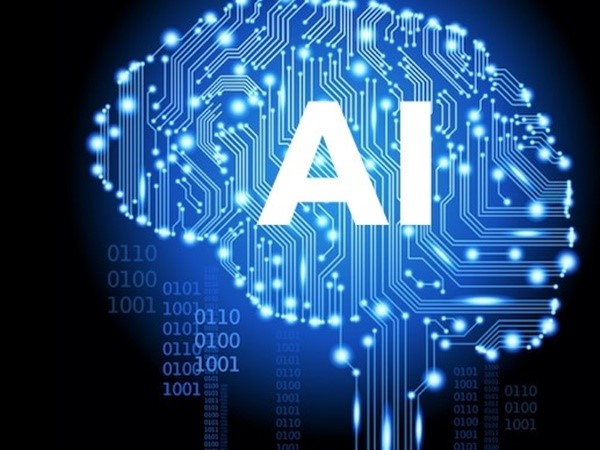AI (Artificial Intelligence) is an intelligence represented by an artificial system. The application of artificial intelligence includes control, scheduling tasks, the ability to predict action, answer diagnostics questions, handwriting recognition, speech and face recognition, etc.
Along with the development of technology, artificial intelligence has been applied in many different fields such as labor, health, security, transportation, marketing, etc. With marketing, application of AI relating to customer behavior research, collecting customer information, answering customers about corporate products … .. Currently, many large companies invest and apply artificial intelligence like Google. , Facebook, Amazon, IBM, Microsoft or Baidu, Xiaomi and other Chinese companies.If you want to learn about artificial intelligence then I would suggest you to take an artificial intelligence course from Intellipaat.

To be able to capture and keep up with technology trends, and exploit effectively the artificial intelligence to apply it to business operations, businesses need to research and apply AI efficiently.
In order to provide an overview of the application of artificial intelligence in marketing activities, within the scope of this article, the author would like to introduce some popular AI applications currently being implemented by many companies all around the world.
- Applications in search engines
Search services can apply AI to “predict” the purpose of users when performing searches with a strange keyword phrase. A popular system currently being developed by Google is RankBrain. Through machine learning, RankBrain can translate words and adapt phrases that have never been seen to a familiar word with similar meaning.

- The application in identifying potential customers
Having AI means that companies can use Big data to categorize customers into different groups based on demographic information, products purchased, offline behavior and online browsing history.
By using AI, Marketing experts can determine when customers will experience major events in life – the time when they can change their shopping habits. For example, Target used customer purchases to send baby product advertising letters to women they expected to become pregnant.

- Application in building and developing relationships with potential customers
Another application of AI in marketing activities is the use of an artificial intelligence application sales system to communicate with potential customers. Companies can collect contact information, introduce product features and ignore potential customers. For example, Conversica with natural language sales systems to send emails and chat, feeling like a real person. When the system has provided information to the customer and identified as a potential customer, it will connect to the salesperson to close the transaction.
Digital publishers provide customers with a personalized experience through a form of artificial intelligence called passive user interface. This method continuously collects behavioral data from the customer’s device, using machine learning to select the experience that matches the needs and wants of the customer. Spotify’s Running, is a typical application for passive user interface. This app collects workout tracking data from user phones to select music that matches the pace of the runner.

- Apply in sales activities
AI can allow websites to suggest products that match their needs or allow product search by communication or image-like communication with real sellers. According to Accenture, the application of AI in the wholesale and retail industry will reach 59% by 2035

- Application in automatic advertising (Programmatic Advertising)
In addition to applications in customer research, sales, and search engines, companies can use computational advertising strengths – a series of algorithms that allow marketing professionals to deliver ads on time, based on factors such as demographic information, online activity habits, and content that customers see when ads appear. Eg. Saatchi & Saatchi LA has applied this technology to allow Facebook users to view separate Toyota ads, suggesting they perform activities based on their own interests.

- Application in image advertising (In) and collaborative filtering
AI is applied in image advertising to bring in specific case-specific advertisements based on machine learning technology with a series of smart algorithms that process information in the same way as your child’s brain people.
E.g, GumGum, the American advertising company, has set up its AI technology to identify all types of objects, people, colors, themes and brand logos by bringing millions of labeled images into nervous system. With this approach, this technology can place an appropriate ad on every photo.
In addition, online retailers can apply AI by offering products offered through collaborative filtering to link website visitors to other customers with the same demands.

If X customers and Y customers buy the same product at some time, they are more likely to be interested and interested in each other’s products on subsequent purchases. Amazon is a good example of a collaborative filtering technology application with an engine that suggests extremely effective products and a classic hint that “users who buy this product also buy …”.
See more: How Social Media Advertising Effect In Business Industries
- Application in valuation activities
Besides the application in construction activities and customer relationship development, in advertising activities and target customer identification. Marketing experts can also apply AI in valuation activities.
Specifically, based on what customers are willing to pay for products in similar circumstances in the past, businesses and marketing experts can use machine learning to set the best prices for people’s goods and services. sold at any time. That’s why customers have to pay more on the weekend if using the “carpool” application? or different ticket prices vary by the time the customer buys.
One of the typical examples of the application of AI in dynamic pricing is the case of adjusting prices on Amazon Marketplace for sellers to ensure profit optimization but still maintain the competitive power with competitors.
Google is also another typical case of using AI in pricing by automatically adjusting the minimum amount that a publisher agrees to pay for an ad visit, based on the cost of the buyer which is paid for a similar product.
Artificial intelligence is an inevitable trend in the digital age. The application of AI in the areas of socio-economic activities, in particular, marketing activities becomes even more useful. However, the point here is that companies need to keep in mind one point: “application but not dependent” on AI.
Building and developing relationships with customers is often done by people, because it is complicated and requires deep thinking.
However, now many applications can help artificial intelligence learn, self-identify and gradually take over the work of this person through chat box or communication channels. The only thing that companies have to do is compose content, interactive scripts according to the campaigns that the company wants to target.
Although AI can replace workloads for people, especially in sales, the content created for AI is the result of a large amount of research, learning, and training content, quality created by humans.
Therefore, human creativity is the foundation for this tool. And it will not replace human creativity. Accordingly, AI in marketing allows companies to spend more energy and intelligence on creative work, and marketing experts should not abuse AI tools and fall into a passive state without an appropriate marketing strategy.